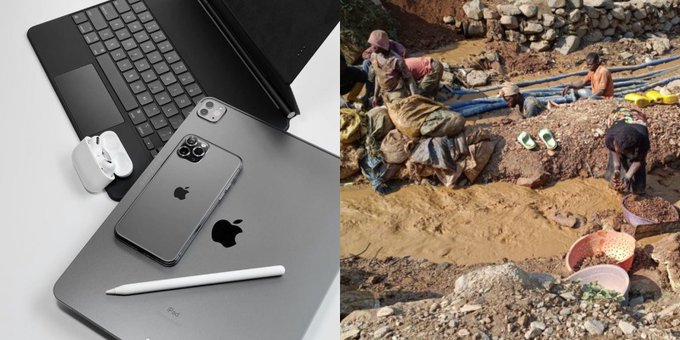The Democratic Republic of Congo (DRC) is reigniting its fight against Apple’s alleged use of conflict minerals, with international lawyers representing the government claiming new evidence from whistleblowers. This development intensifies scrutiny of Apple’s supply chain practices in the war-torn African nation.
DRC Accuses Apple of Silence on Supply Chain
Lawyers representing the DRC government stated on Wednesday accusing Apple of failing to respond to inquiries about its mineral sourcing in the country. They claim to have sent a series of questions to Apple CEO Tim Cook in April, outlining concerns about the company’s supply chain practices in the DRC. These concerns centre on the possibility that Apple’s products might contain minerals mined in conflict zones of eastern Congo.
The lawyers further allege that Apple subsidiaries in France were also contacted and requested to provide answers within a three-week timeframe. However, according to the statement, “the tech giant has remained silent and neither answered nor even acknowledged receipt of the questions.”
New Evidence from Whistleblowers
The situation escalated with the lawyers revealing they had received new information from whistleblowers. “It is more urgent than ever that Apple provide real answers to the very serious questions we have raised,” stated Robert Amsterdam, one of the lawyers representing the DRC. The nature of this new evidence remains undisclosed, but it adds weight to the existing concerns.
Apple’s Defense and Past Audits
Apple has consistently maintained its stance on responsible sourcing. The company emphasizes that it doesn’t directly procure minerals and has implemented a multi-year auditing process for its suppliers. An Apple report published last year claimed that 100% of its identified smelters and refiners underwent independent third-party conflict minerals audits. These audits covered tin, tantalum, tungsten (known as 3T minerals), and gold (collectively referred to as 3TG) used in Apple products manufactured in 2023. The report concluded that “no reasonable basis” was found to suggest that any of the audited entities financed or benefited armed groups in the DRC or neighbouring countries.
Whistleblower Allegations and Contract Terminations
However, the new accusations from the DRC lawyers introduce a potential counterpoint to Apple’s narrative. Peter Sahlas, another lawyer on the DRC’s legal team, alleges that individuals who previously worked on Apple’s supply chain verification in the DRC came forward. These whistleblowers claim their contracts were terminated after raising concerns about “blood minerals” – a term used for minerals mined in conflict zones that fund armed groups – potentially entering Apple’s supply chain. Sahlas stated that they are currently evaluating the whistleblowers’ evidence and will provide further details once a thorough verification is complete.
Escalating Conflict in Eastern Congo
The DRC’s accusations come amidst a backdrop of heightened tensions in eastern Congo. Clashes have intensified in the region, with Rwandan-backed M23 rebels seizing control of Rubaya, a key mining town known for coltan – a mineral crucial for smartphone and appliance production. This development underscores the urgency of addressing the issue of conflict minerals and ensuring ethical sourcing practices in the region.
Uncertainties and Potential Legal Action
Apple has yet to respond to the latest allegations from the DRC. The situation remains fluid, with the lawyers evaluating legal options. The outcome of this case has the potential to significantly impact Apple’s supply chain practices and set a precedent for ethical sourcing of minerals in the global tech industry.










